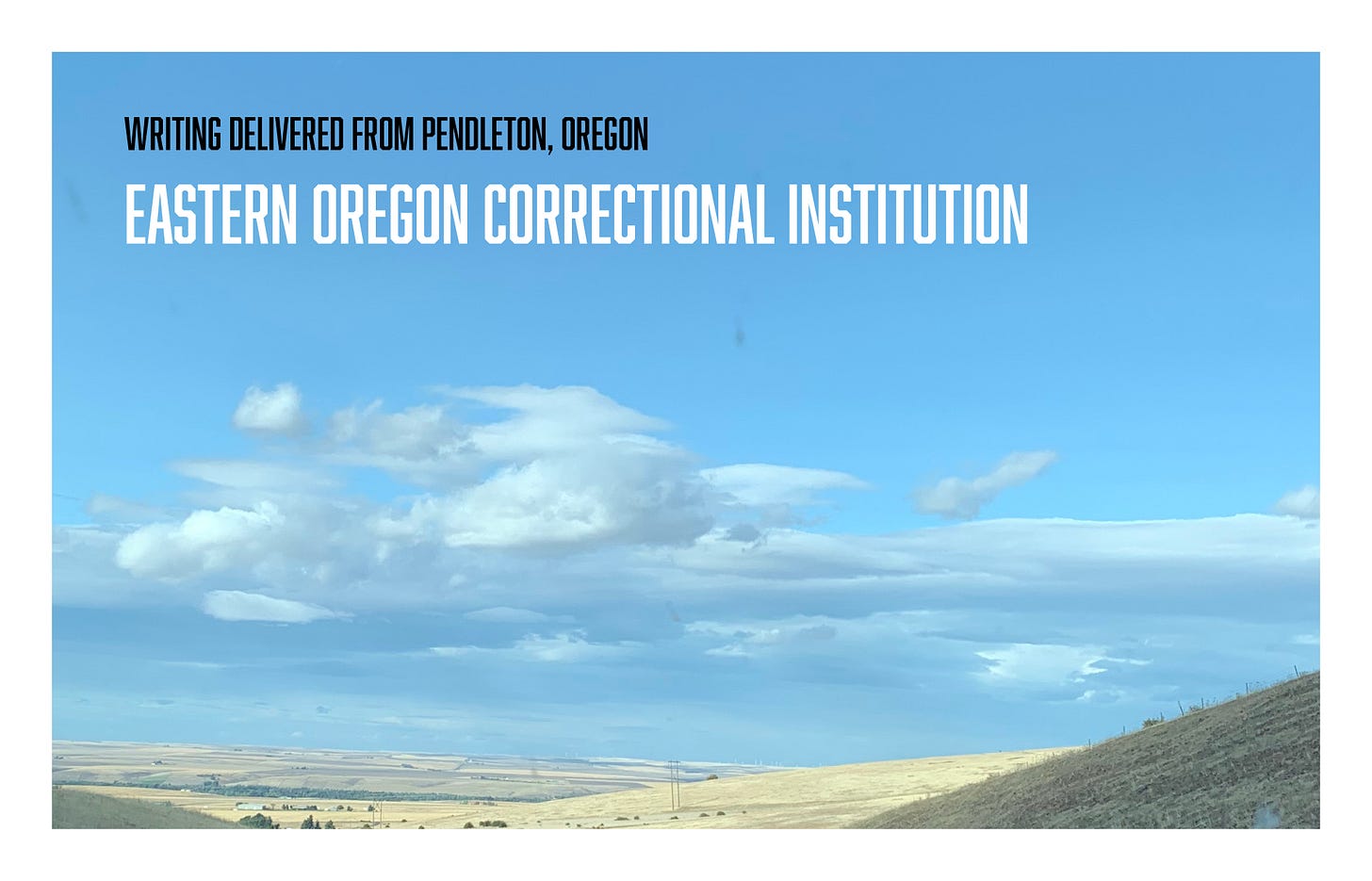IN HIS OWN WORDS: I wrote this because I heard the editors of the PonyXpress say to make an opportunity you must write. I am from Jalisco, Mexico. I do not have an extensive educational background. I went to elementary school abroad for about four years. In 2000, the High School Equivalency Program at University of Oregon opened their doors to me, and I obtained my GED. Blue Mountain Community College gave me the opportunity to work as tutor since 2015. I have accumulated 52 credits towards an Associate of Arts Oregon Transfer degree from BMCC through the New Directions Education Project.
+ + +
My ancestors and I grew up without borders; no stone fence was too high to keep us out. Like wild horses we sensed the storms coming before the clouds appeared on the western mountains. Though we were barefoot and lacked extra garments to wear, no worries seemed to beat us. Looking back, it seems a desolate place.
Now my thoughts can become words and eventually voices as I write of a time when most of our tools were of stone or clay. When electricity was not yet available, and an indoor bath was unheard of, our only games were hide and seek. The children surrounded their elders to listen in awe. At that time, dogs slept outside, men would work from daybreak to sundown and my family of eight children was considered small.
At the crow of the rooster women urgently got up, bundled themselves in a blanket and ignited their comals to make handmade tortillas and to boil some starch. The crackling of the wood burning, the sound of the grinding corn mill and the clapping of their hands was a true warm up. The aromas and noises were thrilling.
During late summer, in May through June the rains would begin. The voice of the thunder followed the powerful lightning. The rain was always welcome, for the seed had usually been sown already. We would pack our resources and head to our fields. In difficult terrains we would line up like ants; often on donkeys, mules, and horses.
The aroma of wet soil and wood ashes was pleasant to the group of workers. By 6:30 AM or earlier the leader would break the silence impacting his spear-like iron tool upon the rocks concealed underground. Before noon, one of us would break out to gather wood, make a fire and reheat or cook our midday lunch. A calling sound would come whistling from or someone would wave signals indicating to stop and gather for a meal. The fields were barren and burned to the ground. Oh, how I remember the well-wrapped tacos and salsa or peppers and at times Mexican cheese. No forks, no plates, no tongs, only a stick was used to flip the items. We took turns to be near the coals until we ran out of food or quenched our hunger and thirst.
By 7:00 PM (or later) we lined up again on the worn-out, worm-like pathway and headed back home. On our way, we sought not to return empty handed; we gathered wood, roots, fruit, branches or even hunted wild game. Our ancestors cured many illnesses using varieties of plants — either their roots, leaves, seeds, and even soil. Their brains were encyclopedic. The source of our fuel was often pine slivers or petroleo. The water we used was drawn from an open well or a spring. Weekends were marked by the traditional announcement of Catholic church bells.
During the heavy storms, we would rush to cross the rivers before the streams drained and rivers grew exponentially, often carrying cattle, swallowing trees, and threatening to breach their own banks. Immense volumes of water would erode their paths carrying unrecognized items. As the waters raised, the fords became funnels of travelers waiting for the waters to recede. Numerous families of agronomists thrived in such conditions. Like bees, we worked diligently and preserved goods during the harvests. Going barefoot was not uncommon, however inadequately feet were protected in such an environment. The vegetation grew lush covering every nook. Before I realized it, the groves of pomegranates were in bloom.
Seasons came and left, leaving gifts of honey, herbs, corn, beans, pumpkins, potatoes, chayotes, husks, coffee beans, beans and more. Our homes were shared with chickens, cats, dogs, goats, and many other creatures day and night — often without formal invitation. Women stayed home: teaching, cooking, sewing, washing, caring for the sick and many other chores related to a farm household. Men were in charge of hunting, planting, clearing, sewing, repairing, milking, burning and gathering useful materials; men also did most of the business. The abundance came and left with the seasons; it was hard at times. Borrowing from neighbors was the only way to subsist. Trading fruit from the orchard or honey from our hives was an anticipated method of negotiation. Every member of the house contributed to the success of the residence. The real success of these families was their reputation, moral character, and spiritual devotion to God.
My life began in a dark place, there I was formed and conceived. Born to overcome many obstacles and to continue a cycle that is not so different than that of my ancestors. The secrets of life were hidden from me. Even caterpillars metamorphosed into butterflies without my awareness. I heard the sound of the buzzing city, and it dragged me, to be swallowed. I crossed a wall meant to keep me out. Now I am confined by another kind of wall in the physical sense, nevertheless, spiritually I am free. | FPB
FERNANDO PELAYO BRAMBILA IS FROM JALISCO, MEXICO AND SPANISH IS HIS FIRST LANGUAGE. HE FINDS WRITING TO BE AN AWESOME WAY TO COMMUNICATE.


Thank you for the vivid imagery in this work!